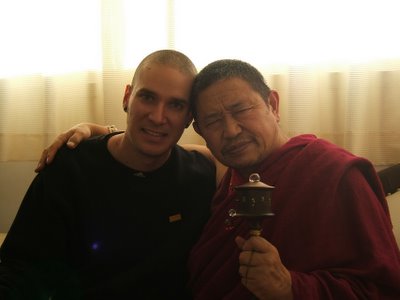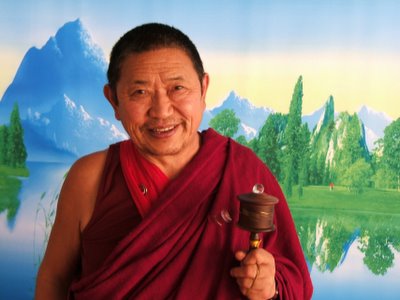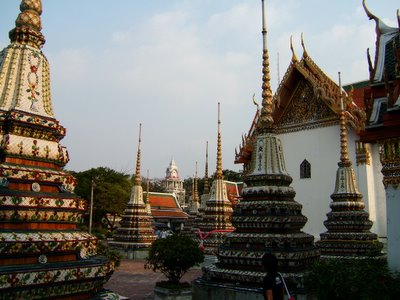I wrote this when I was working my steps about a year and a half ago. Today I was reading something that a friend had posted and it reminded me of this. Enjoy:
The dukkha (suffering) of the drug problem.
The problem is not drugs.I believe in this case the use of the word problem is deceptive. It implies something that can be fixed via remedy. Therefore if there is a drug problem this should be remedied by application of an antidote. Instead of a drug problem, I think of it more of a drug solution.
We used drugs as a solution to a more sinister underlying problem, just as some people use sugar, sex, television or a number of other solutions to attempt to remedy the bare fact that they can not sit still comfortably in their own skin.
If we had a drug problem, then quitting the drug should bring a solution, but as we know this is not the case. The reality of this is not something that can be easily shown conceptually, it is something thatis experienced directly and can be very overwhelming.
This is where the concepts of the first step, of unmanageability come into play with the first and second Noble Truths of Siddhartha Gautama, the historical Buddha Shakyamuni. We must look deeply and honestly at our selves and see how mistaken we are at this present moment in time. We have not been willing to look at the real problem, ourselves. Instead of standing firm and facing the great pain we continuously feel when we slow down and look deeply,we continuously make the problem worse by utilizing methods that only help to keep us in bondage. It is like we suddenly find our selves in a deep hole and instead of attempting to climb out, we decide we could possibly keep digging and come out on the other side. Again, this is not something that is easily conveyed except by a direct and personal experience. We must have a direct realization that through our past unskillful actions we have created an unending stream of suffering for ourselves by looking to an outer refuge to remedy the bare fact that we are not happy. This is the real problem, as explained in the 12 step program as well as by the Buddha.
The first noble truth of the Buddha is that dukkha,(suffering) is inherent to existence. We are born, we get sick, and we die. All these bring suffering. We suffer because we are affected by greed, desire, aversion and the negative mental states and emotions. We are affected by the suffering of karma, by the actions of ourselves and those around us. The biggest cause of suffering is our ignorance, which does not see this whole process, and which continues to look outwards for a solution to a problem that it does not really grasp. Dukkha of course is much vaster and more complex then explained briefly here for the purposes of this paper.
The second noble truth, is that the suffering we are all experiencing is caused by this fundamental ignorance, that we are continuously grasping at a solution for a problem we do not really understand. In this case that we have an extreme aversion to dealing with ourselves and that we have attempted to deal with this by staying in a numb state where we do not have to really look in the mirror.
It is like we are standing on the beach with our back to the water, looking for the ocean. The dharma, as explained by the Zen master Bodhidharma, is like the finger pointing to the moon. The finger is not the moon, yet the finger is necessary for without it, the moon could go unfound forever.
The good news is there is a solution, both in the 12steps and in message of the Buddha. But in order to see it we must look deeply and honestly to see that our lives are unmanageable due to our unskillfulactions, by our inability to see the real problem. We must admit that our solution never solved anything,that in reality we were only creating more dukkha for ourselves. We have an infinite number of unskillfulways to deal with our problem, but at the root there is only one cause. We must admit to ourselves that the hole we have been digging has no escape, that we must put down the shovel and start climbing out. On a more subtle level we must realize that we can give upone problem like drugs and pick up another, such assugar or sexual gratification. We can also put down the shovel and sit where we are, but this will not get us out of the hole. We have to realize that the real underlying problem is me, the way I feel not the way I chose to deal with these feelings. The drugs we took in attempting to remedy the problem are a symptom of our real problem. To put it in dharmic terms the finger is pointing at the moon, it is not the moon itself. It is amazing to think that our unskillful use of drugs has brought us to a place where we can fix the real problem which we have not been able to see before. We have used a very unorthodox method of realization, but now we have the opportunity to turn it around.These are the first two noble truths of the Buddha.
The third is accepting that there is a solution to our problem, that we can reach a point of cessation. This brings us to the 4th truth, the path which leads to cessation. But both systems (12 step program, and Buddhism) are founded on an honest surrender, a realization that can only come internally. That our lives have become unmanageable, that they are made o fdukkha is easily understood intellectually but this is incorrect. It is what Venerable Chogyam Trungpa called spiritual materialism because we will not really surrender instead our ego will manipulate what we read or try to figure out into a way where it survives. We will look spiritual on the outside, but it will be a hollow shell still tormented within. It is easy to see the suffering of others and think of unmanageability as conceptual, but until we look deeply and see it within ourselves it continues as an intellectual conception. Instead we must be honest and see our misplaced search for happiness and where the real problem is, and then we can begin to get down to dealing with it.
This is directly addressed in both Buddhism and the 12step program; that in order to recover we must look skillfully, see the real problem and surrender. We must hit bottom of a never-ending hole, we must admit the reality of dukkha and the inevitability of karma. However until we actually surrender it is completely possible to be in the program and to practice Buddhism under the grasp of spiritual materialism, because at the root of both paths lies the admission that the real problem is ourselves and our unskillfulness in finding a real solution. That the fundamenta lignorance (our ego) has manipulated us for too long, and that we haven't gotten anywhere by following it.
As spiritual practitioners we must welcome this challenge to face ourselves because our honesty shows us that indeed we are on the real path to recovery, if we are willing to continuously do the work necessary. Then when we have climbed out of our hole we can stand and look at it from the outside, and with eyes wide open walk the other way and leave our hole behind forever.
I have used we in this paper merely as it is the way it spilled out of my head, however these represent my own thoughts and I am in no way attempting to push them on any other person, nor insinuate that I am right or that I know anything about anyone besides myself.














































